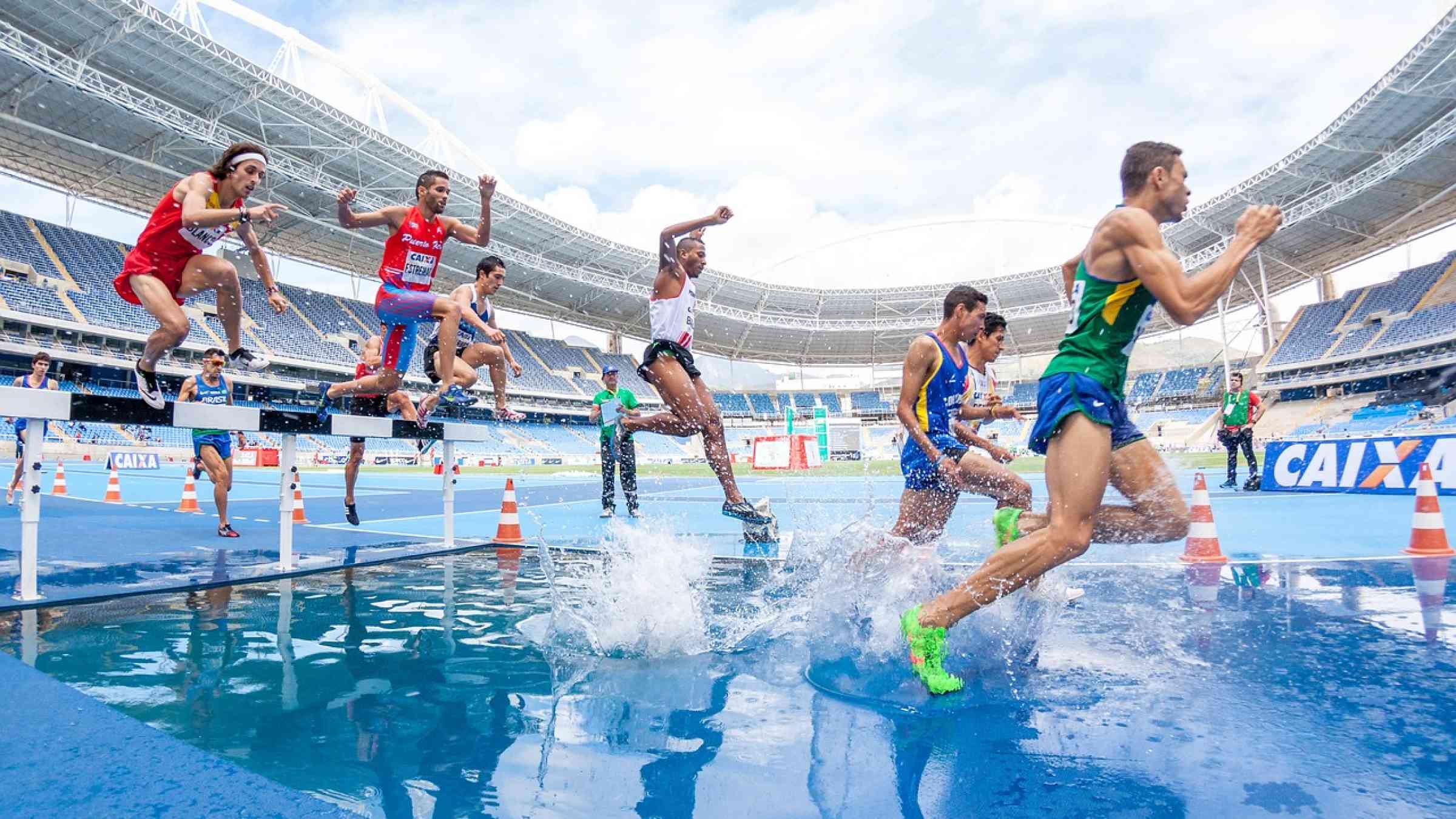Athletes warn of extreme heat risk at olympic, paralympic games

Some of the world's top elite athletes are voicing concern about competing during extreme heat in a new report released before the Olympics and Paralympics to be held this summer in France.
"We already know that extreme heat is a silent killer among the general population, and that even with prior preparation and intervention, it can still be risky for athletes to compete in," said Australian racewalker Rhydian Cowley in the report, Rings of Fire: Heat Risks at the 2024 Paris Olympics, produced by Basis Frontrunners.
"So absolutely I'm concerned that extreme heat in competition could threaten the lives of athletes," Cowley concludes.
The Summer Olympics are scheduled to begin July 26 and the Paralympics will start August 28, both in Paris, France. The competitions could end up being the hottest on record, exceeding temperatures at the last summer games in 2021 in Tokyo, Japan.
Several statistics indicate the risk this year's games pose. Europe was recently found by the EU's weather service to be the fastest-warming continent on Earth. France's hottest three years on record have occurred since 2020, and the nine hottest have all been in the last decade.
Annual temperatures have increased 1.9°C in France since 1924, when the country last hosted the Summer Olympics. Temperatures during the months when the games take place have warmed by 3.1°C since that time, while averages for the Paralympics have warmed by 1°C, according to a section of the Rings of Fire report prepared by Princeton, New Jersey-based Climate Central, a non-profit, independent group of scientists and communicators.
Extreme heat poses real dangers of heat exhaustion and heat stroke, which can become life-threatening if left untreated. Several athletes quoted in the Rings of Fire report have had to withdraw from past competitions-including in past Olympics-because of heat.
Those set to compete are going to extreme measures to prepare themselves for the expected conditions, training in heat chambers and wearing extra layers of clothing or heat-trapping suits during workouts. Others try to reduce body temperature ahead of competitions by wearing ice vests or taking ice baths.
But New Zealand Olympic hockey player Hugo Inglis said many athletes are afraid of how they may be perceived if they speak out about having to compete in the conditions.
"The current environment is one of fear," he said.
Inglis recalled experiencing the effects of extreme heat himself after playing three back-to-back matches in 40°C in Malaysia.
"In the final game, a few of us had heat stroke, and I remember being on the verge of blacking out in the changing room," he said. "I felt terrible. Physically sick, head pounding, body going limp, some shivers. The room goes dark and vision is hard to focus."
After gathering input from athletes, the report compiled a list of key requests to reduce the dangers of competing in the heat, including:
- Scheduling events outside the hottest parts of the day;
- Limiting heat exposure and having water breaks;
- Supporting athletes to speak up about their experiences;
- Collaborations between athletes and sporting bodies to "significantly alter the current narrative towards climate action";
- Reassessing sports teams' sponsorship by the fossil fuel companies that are causing the climate crisis that is the root cause of temperature increases.